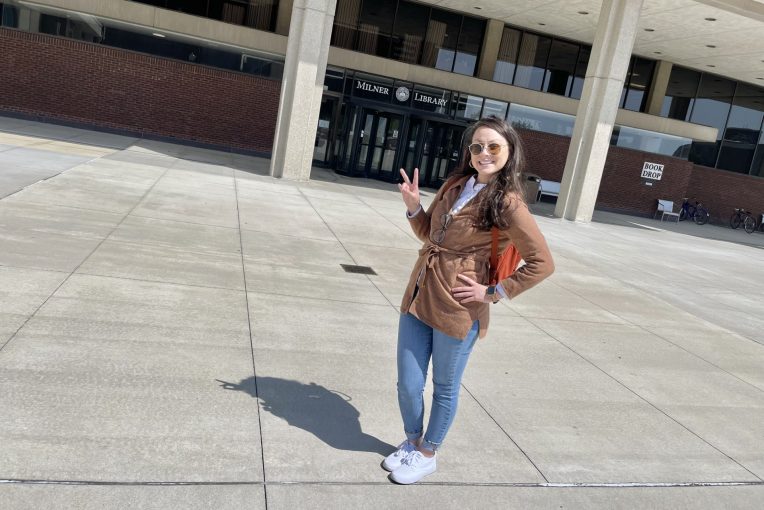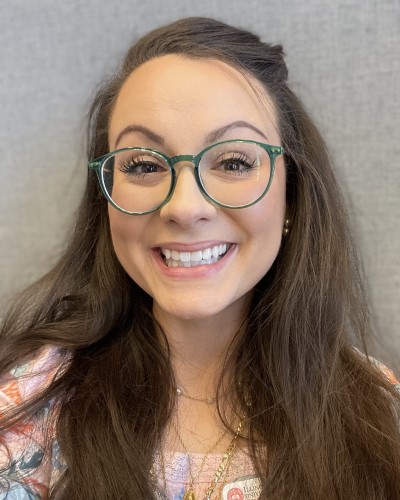Spotlight on Scholars in the Latin American and Latina/o/x Studies program at Illinois State University
Latinx Heritage Month, observed September 15-October 15, is a time to recognize and celebrate the rich and diverse contributions of Latinx individuals and communities to the cultural, social, and historical tapestry of the United States and beyond. This monthlong celebration serves as a reminder of the vital importance of embracing and honoring the Latinx heritage that shapes our nation.
Illinois State University’s Latin American and Latina/o/x Studies program is grounded in a commitment to diversity and interdisciplinary learning. It is a place where students and faculty alike come together to explore the multifaceted narratives and experiences of Latinx communities. We recognize that Latinx identities are profoundly complex, influenced by a mosaic of cultures, histories, and traditions. As such, our program serves as a dynamic platform for the study of these complexities.
In the spirit of Latinx Heritage Month and our dedication to fostering interdisciplinary knowledge, we have initiated an exclusive series of articles. Through this series, we invite you to delve into the lives, work, and passions of our affiliated and joint-hire faculty members. These scholars bring unique perspectives and expertise to our program, elevating our collective understanding of Latin American and Latina/o/x Studies.
In this line, we are excited to present the first scholar in this series, María-Asunción Tudela.
Meet María-Asunción Tudela: Bridging gaps in intersectional feminist scholarship
María-Asunción Tudela comes to Illinois State from Asheville, North Carolina, where she spent her formative years immersed in a multicultural family. With a Bolivian father and Spanish-Nicaraguan mother, her upbringing ignited her passion to explore her identity, agency, and where she belonged.
She earned a bachelor’s degree in political science from the University of North Carolina at Asheville in 2015 and later pursued graduate studies, delving into feminist theory and library science.
María-Asunción joined Illinois State University’s Milner Library as a humanities and social sciences librarian in July.
Getting to know María Q&A
How have you adjusted to life at ISU since your hiring?
It’s been quite an adventure! I always pictured myself moving back to Asheville with my family after being in the Triangle for so long. However, when the opportunity came to join ISU as a librarian, I was so excited. I am blessed to have an extremely supportive family who were also excited for me. I am really happy to be here, especially as I go about finding my community. Actually, this is my first time being in the Midwest. I’m a little nervous for the Midwest winters, but I’m preparing!
Can you describe your professional/teaching/research/personal interests? If you want to talk about your take on Latin Studies, that’s great!
My research interests have evolved a great deal since my graduate student days at NC State. My overarching interests focus on theories of agency, resistance and liberation in relation to power and how power manifests on the individual, collective, and institutional levels. I learned a lot from reading Gloria Anzaldúa, Chela Sandoval, Cherrie Moraga, Judith Butler, Sara Ahmed, Chandra Mohanty, Nancy Hirschman, and Saba Mahmood. As a librarian, those topics intersect with and inform my current scholarship where I am looking into critical librarianship, critical pedagogies, and trauma-informed librarianship. Since I have theoretical training in feminist theories and women’s and gender studies, that is the framework from which I ground my work in. In fact, my feminist framework also informs the way I approach librarianship, teaching, and information literacy in a general sense.
Can you share your professional experiences and how they relate to Latinx Communities?
Growing up, both of my parents were very active in the Latinx community in my hometown. My dad remains a fierce advocate both in the Latinx and immigrant communities. He has pretty radical politics. I feel he may have gotten that from mi abuela. For the last three decades, he has worked in the immigration realm; and from the age of 16 until 22, I worked as his secretary/intern, where I learned about DACA, waivers for unlawful presence, and the like. As such, from an early age, I was exposed to the complicated immigration system in the U.S.; not only on a personal level since my parents are immigrants, but on a political and organizing level too. Once in college, I learned the deeper nuances of injustice, the prison and military industrial complexes, and ‘crimmigration’. I dug deeper into these issues in graduate school—through a feminist lens. I was also a paralegal at an immigration law firm prior to becoming a librarian. I worked primarily with survivors, mostly from the Latinx community. My areas were T visas, U visas, VAWA, I-601A waivers, DACA, DACA renewals; but I also did adjustment of status, I-130s, I-90s, work authorization renewals, and naturalization. I was the paralegal to our attorney in immigration court, and I was also the translator on record for interviews at USCIS. In other words, my personal and professional experiences directly relate to Latinx communities.
What advice would you offer to a student contemplating declaring a minor in Latin American and Latina/o/x Studies?
My advice is to go for it. Not only is this minor a space to find powerful community, but it is also a way to get involved, ask important questions, engage in transformative dialogue, and participate in both theory and praxis.
What advice would you give a potential student contemplating graduate school?
For graduate school, my advice would be to do a lot of research. Reach out to individuals in your academic community you trust for guidance, talk to current graduate students in the programs that interest you, and inquire about their experiences. Look at affordability and cost of living in the areas where you are thinking about going to school. Graduate school is a challenge, but your presence in higher education is an act of subversion and resistance.
Is there something you want to accomplish in your life (work, personal, or academic goals)?
I would eventually like to write a book. In the midst of writing my thesis in my first graduate program, I put together an outline for a manuscript building upon the scholarship I was doing in school at that time. It’s been years since I have looked at that document, and I wonder where it is. But if I ever find it, it may become a book one day.
What do you do for fun?
I love spending time with my family and my pets. An activity I really enjoy is crocheting. I am currently working on a summertime top, though I may have to wait until next summer to wear it since the weather is changing!
Are you reading a book right now? If so, what are you reading?
A book I always have with me is Borderlands = La Frontera. “Chapter 7: La conciencia de la mestiza/Towards a New Consciousness” is a chapter I revisit quite often. However, I have just started Hacia un saber sobre el alma by María Zambrano.
As we celebrate Latinx Heritage Month, we celebrate scholars like María-Asunción Tudela, whose diverse background and academic research contribute to the vibrant tapestry of the Latin American and Latina/o/x Studies program at Illinois State University.
Collectively, the scholars featured in this series are catalyzing transformative change within our Latin American and Latina/o/x Studies program. Their research, teaching philosophies, and personal experiences are a testament to their dedication to advancing their respective fields and inspiring the next generation of scholars and activists. Together, they exemplify the power of inclusive education and the ability to foster a more equitable and culturally enriched academic landscape.
We encourage you to delve deeper into the work of each scholar that will be featured in this series. Explore their research, engage with their ideas, and discover new perspectives that challenge assumptions and broaden horizons. The Latin American and Latina/o/x Studies program at Illinois State University is a vibrant community that welcomes your participation, questions, and contributions. Together, we can continue to build a more inclusive and knowledgeable society.
In the spirit of Latinx Heritage Month, let us all embrace the power of diversity, dialogue, and education. Together, we can celebrate the richness of Latinx heritage and work toward a more inclusive and culturally enlightened future. Thank you for joining us in this celebration and exploration of Latin American and Latina/o/x Studies.


